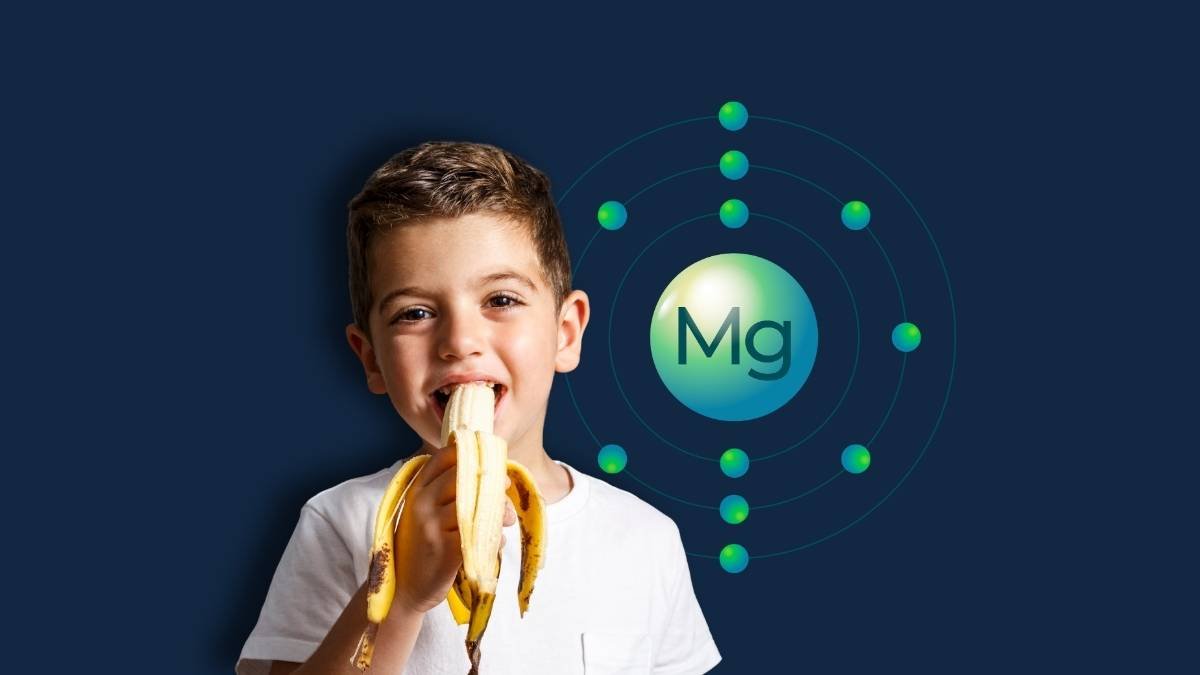Exploring Non-Medication Treatments for Tic Disorders: Vitamin B6, Magnesium, and L-Theanine
Managing tic disorders can be challenging, but at Philadelphia Integrative Psychiatry, Dr. Danish and his team are dedicated to providing personalized care. One of the effective approaches we frequently explore involves non-medication treatments for tic disorders. Nutritional supplements have shown significant promise in helping individuals regain control over their lives. These treatments are especially crucial for conditions like tic disorders, where traditional medication options may be limited or come with undesirable side effects. Dr. Danish and his team stay at the forefront of integrating these innovative therapies into their practice, whether FDA-approved or off-label, to ensure comprehensive care for all patients.
This blog delves into two promising non-medication treatments for tic disorders: the use of magnesium and vitamin B6 (aka pyridoxine) supplementation, and L-Theanine combined with vitamin B6. These treatments have been highlighted in recent studies as effective alternatives to traditional medication, offering hope to those seeking relief from tic symptoms without the associated side effects of pharmacological interventions.
What are Tics
Tics are involuntary, repetitive movements and vocalizations that are hallmark symptoms of several neurological disorders, most notably Tic Disorders and Tourette Syndrome. These movements and sounds can vary widely in their presentation and severity. In the context of Tourette Syndrome, a person must exhibit both motor and vocal tics for over a year, with symptoms typically beginning before the age of 18. Motor tics involve sudden, brief movements such as blinking or shoulder shrugging, while vocal tics include sounds like throat clearing or grunting. Persistent (Chronic) Motor or Vocal Tic Disorder is diagnosed when either motor or vocal tics, but not both, persist for more than a year. In contrast, Provisional Tic Disorder is characterized by motor and/or vocal tics that have been present for less than a year. Despite their involuntary nature, tics can sometimes be suppressed temporarily, although this often leads to a buildup of tension. Understanding these distinctions helps in diagnosing and managing these disorders effectively.
Tic disorders are often accompanied by comorbid conditions such as anxiety, ADHD, and OCD. The prevalence of anxiety in TS patients ranges from 2% to 45%, with anxiety often presenting early in life. Traditional treatments for TS include alpha-2-adreno-receptor-blockers and antipsychotics, which can have significant side effects. Nutritional supplements have been explored for their potential benefits in neurological conditions
More on Vitamin B6
Role in the Human Body: Vitamin B6, also known as pyridoxine, is essential for over 100 enzyme reactions involved in protein metabolism. It aids in neurotransmitter synthesis, supporting cognitive development and maintaining normal nerve function.
Cellular and Neurologic Function: Vitamin B6 is crucial for creating neurotransmitters like serotonin and dopamine, which regulate mood and brain function. It also helps maintain normal levels of homocysteine, reducing the risk of cognitive decline.
More on Magnesium
Role in the Human Body: Magnesium is vital for numerous biochemical reactions, including energy production, muscle contraction, and nerve function. It supports bone health and regulates blood pressure.
Cellular and Neurologic Function: Magnesium plays a key role in nerve transmission and neuromuscular conduction. It helps stabilize neural membranes and is involved in the synthesis of neurotransmitters, contributing to overall brain health.
More on L-Theanine
Role in the Human Body: L-Theanine is an amino acid primarily found in tea leaves. It promotes relaxation without drowsiness and may enhance cognitive performance under stress.
Cellular and Neurologic Function: L-Theanine increases levels of neurotransmitters like serotonin and dopamine, improving mood and cognitive function. It may also enhance alpha brain wave activity, promoting a state of relaxed alertness.
How Magnesium and Vitamin B6 Improve Tic Disorders
A study titled "New therapeutic approach to Tourette Syndrome in children based on a randomized placebo-controlled double-blind phase IV study of the effectiveness and safety of magnesium and vitamin B6" explores an innovative treatment for Tourette Syndrome (TS) in children. This research focuses on magnesium and vitamin B6 supplementation, hypothesizing that these nutrients can alleviate symptoms by addressing potential deficiencies linked to TS.
Study Findings: The combination of 0.5 mEq/Kg magnesium and 2 mg/Kg vitamin B6 significantly reduced motor and phonic tics compared to placebo, with a 50% improvement in tic severity scores over three months.
Dosing: The regimen involved administering magnesium pidolate at 0.5 mEq/Kg/day and pyridoxine alpha-ketoglutarate at 2 mg/Kg/day.
Safety: Both supplements were well-tolerated with no significant side effects reported, making them a safe option for children.
L-Theanine and Vitamin B6: A Pilot Study on Tic Reduction
Another study titled "Use of Nutritional Supplements Based on L-Theanine and Vitamin B6 in Children with Tourette Syndrome, with Anxiety Disorders: A Pilot Study" examines the impact of these supplements on tic severity and anxiety symptoms in children.
Study Results: Involving 34 children aged 4-17 years, the study found that those receiving L-Theanine (200 mg/day) and Vitamin B6 (2.8 mg/day) showed a significant reduction in tic severity. The mean decrease in YGTSS scores was 43.5% compared to 18.3% in the psychoeducation group.
Effectiveness: While both groups showed improvements in anxiety symptoms, the differences were not statistically significant for anxiety but were notable for tic reduction.
Tolerance: The supplementation was well-tolerated without consistent adverse effects reported.
Where to Start
Dr. Danish often recommends trying a combination of magnesium and vitamin B6 as a first-line treatment due to his appreciation for magnesium's broad benefits, which extend beyond tic disorder management. Magnesium plays a crucial role in enhancing cognitive function, improving focus, alleviating anxiety, and promoting better sleep quality. If this meets with side effects or lack of efficacy, consider trying the B6 with L-theanine instead.
Getting in Touch with Dr. Danish and His Team
Whether you’re struggling with tic disorders or simply want a comprehensive evaluation, our team is here to help. At Philadelphia Integrative Psychiatry, we offer unique treatment options that include advanced therapies like biofeedback and Transcranial Magnetic Stimulation, alongside nutritional supplements and behavioral interventions. Our commitment to cutting-edge care ensures that each patient receives a personalized treatment plan tailored to their specific needs.
For More on Nutritional Supplements:
Sources
Back to Blog
Disclaimer: This guide is for informational purposes only and not a substitute for medical advice. Any treatment—whether a supplement, medication, procedure, injection, therapy, or device—carries potential risks, especially when used in excess or by individuals with certain medical conditions or genetic predispositions. Always consult a qualified healthcare provider before starting any treatment.






